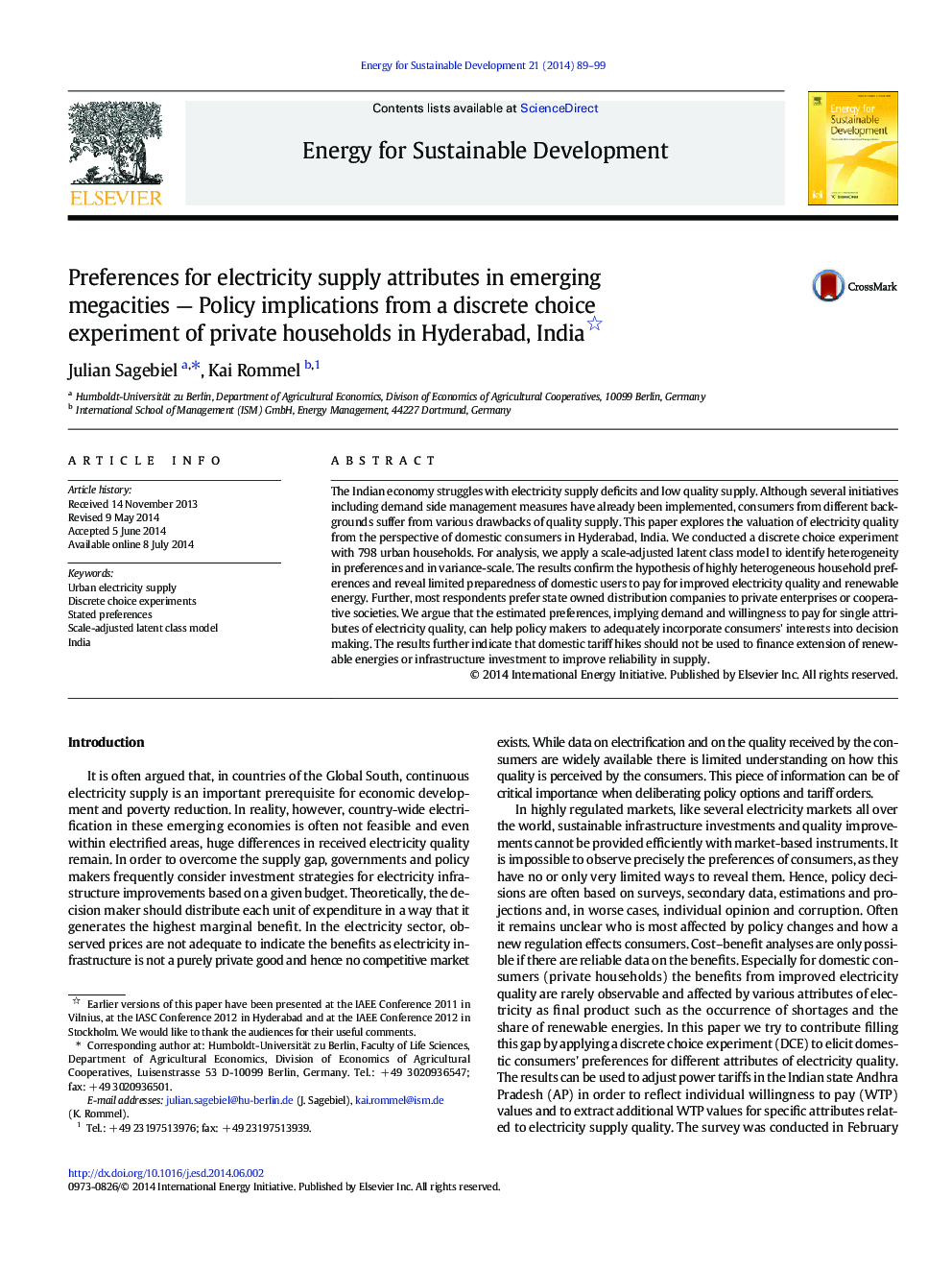| Article ID | Journal | Published Year | Pages | File Type |
|---|---|---|---|---|
| 1046921 | Energy for Sustainable Development | 2014 | 11 Pages |
•We use discrete choice experiment data from domestic electricity users in Hyderabad.•Applying a scale adjusted latent class model, we found heterogeneous preferences.•We found low willingness to pay for reductions of power cuts and renewable energy.•There are strong preferences for state owned supply companies vs. private companies.•Policy makers should consider consumers in tariff designs and reform processes.
The Indian economy struggles with electricity supply deficits and low quality supply. Although several initiatives including demand side management measures have already been implemented, consumers from different backgrounds suffer from various drawbacks of quality supply. This paper explores the valuation of electricity quality from the perspective of domestic consumers in Hyderabad, India. We conducted a discrete choice experiment with 798 urban households. For analysis, we apply a scale-adjusted latent class model to identify heterogeneity in preferences and in variance-scale. The results confirm the hypothesis of highly heterogeneous household preferences and reveal limited preparedness of domestic users to pay for improved electricity quality and renewable energy. Further, most respondents prefer state owned distribution companies to private enterprises or cooperative societies. We argue that the estimated preferences, implying demand and willingness to pay for single attributes of electricity quality, can help policy makers to adequately incorporate consumers' interests into decision making. The results further indicate that domestic tariff hikes should not be used to finance extension of renewable energies or infrastructure investment to improve reliability in supply.
